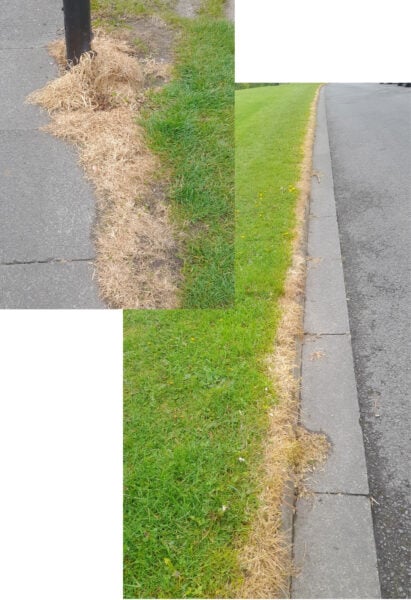We were shocked but not altogether surprised to find out this week that toxic levels of the chemical pesticide Glyphosate have been found in tampons – over 40 times the legal limit for drinking water.
It is thought the toxic chemicals got into the tampons via the weedkiller used to grow the cotton that is used in their manufacture. Cotton farming is one of the most chemically dependent farming practices in the world. If chemicals enter the vagina, they enter the bloodstream immediately without going through the body’s detoxification systems. Therefore the health risks are higher.
Please read the full article here: Toxic pesticide levels found in tampons 40 times higher than legal limit for water | Pesticides | The Guardian

The chemical weedkiller in question, Glyphosate is widely used by North Tyneside Council on your towns landscapes.
It is strongly suspected of being a carcinogen, causing non-Hodgkin’s Lymphoma and neurological disorders, e.g. Parkinson’s disease, in humans. It is also detrimental to our natural environment.
Over the past number of years, our members have been asking the council to discontinue the use of carcinogen weedkillers in our borough that are widely known to be harmful to our health and to nature.
There is simply no need to spray this poison on our streets, verges, parks, footpaths, walking tracks, around tree trunks, where they risk harming people, their pets, bees, butterflies, moths, birds and their food sources, plants and other wildlife. It can also run off into our waterways where it will damage aquatic creatures.
The council’s responses back have always been that they will not move away from the practice of using chemical weedkillers and that the Glyphosate they use is non-hazardous. This is just not true and everyone knows it. There are plenty of non-chemical options available to reduce the trip hazards they talk about. We need to keep pointing this out to them. Here are some examples:
Pesticide-Free Towns – success stories – Pesticide Action Network UK
We will continue to ask the council to stop this dangerous and unnecessary practice like many groups are doing around the country and around the world.
We would also urge you to do the same. They can be contacted at: contact.us@northtyneside.gov.uk